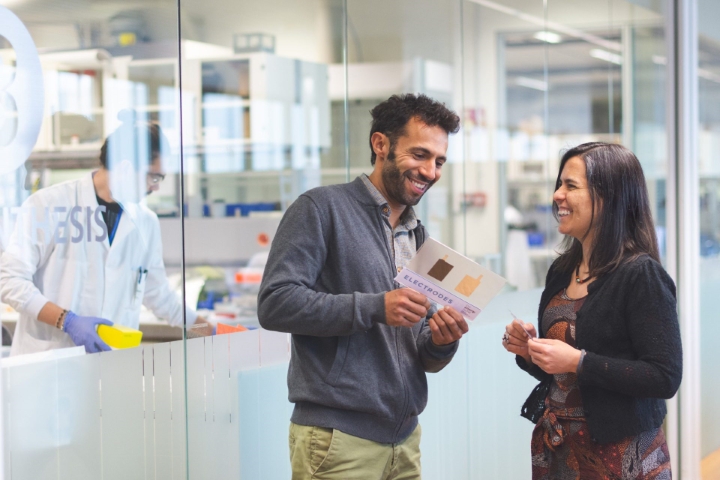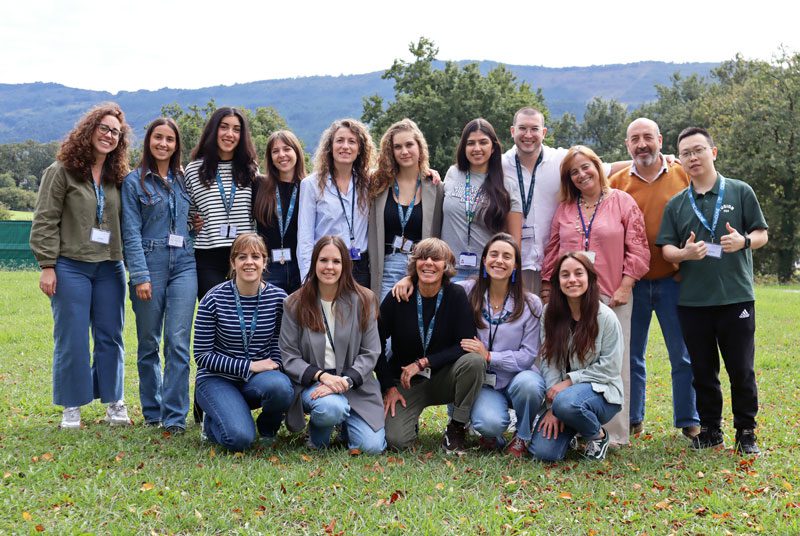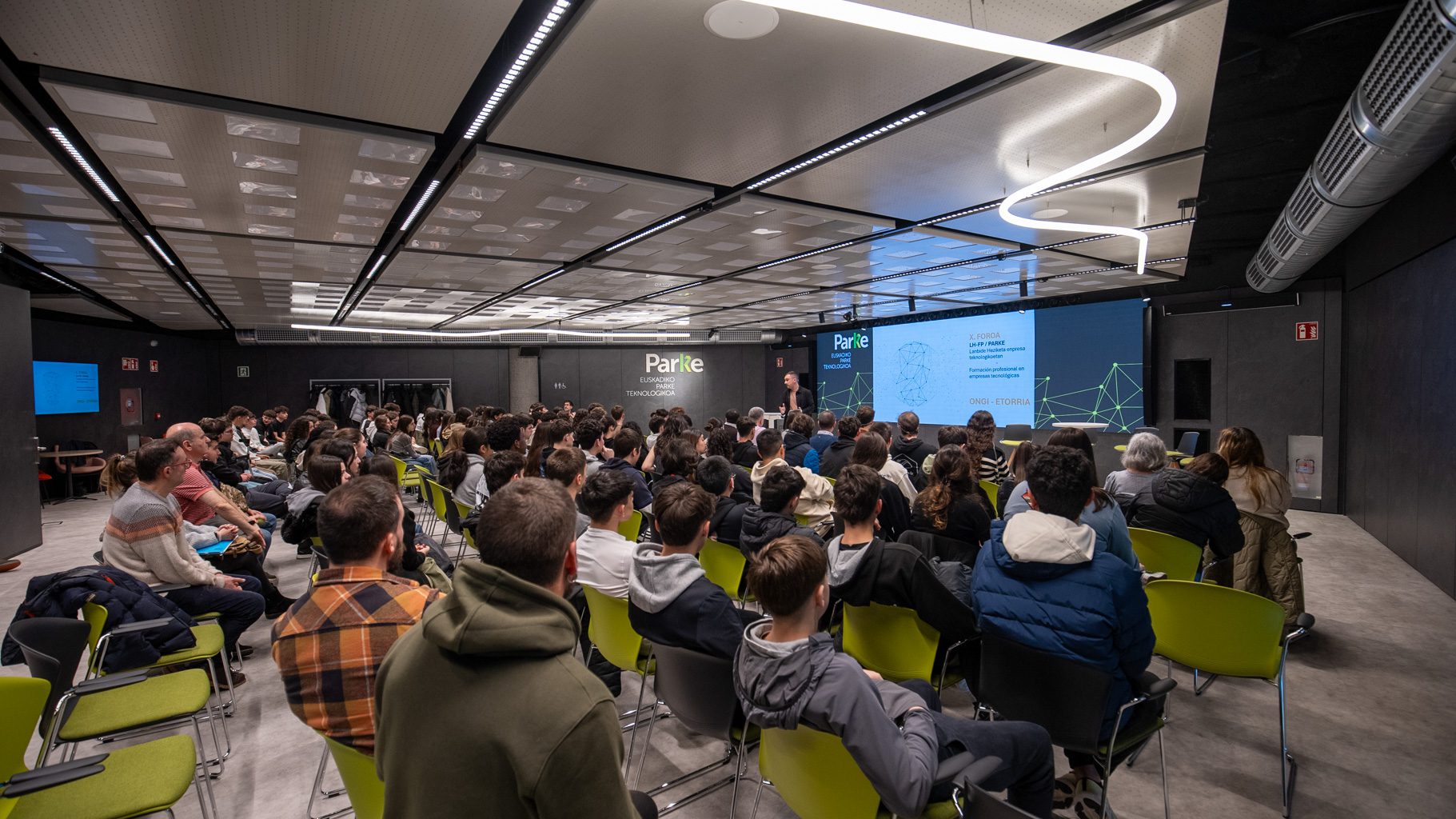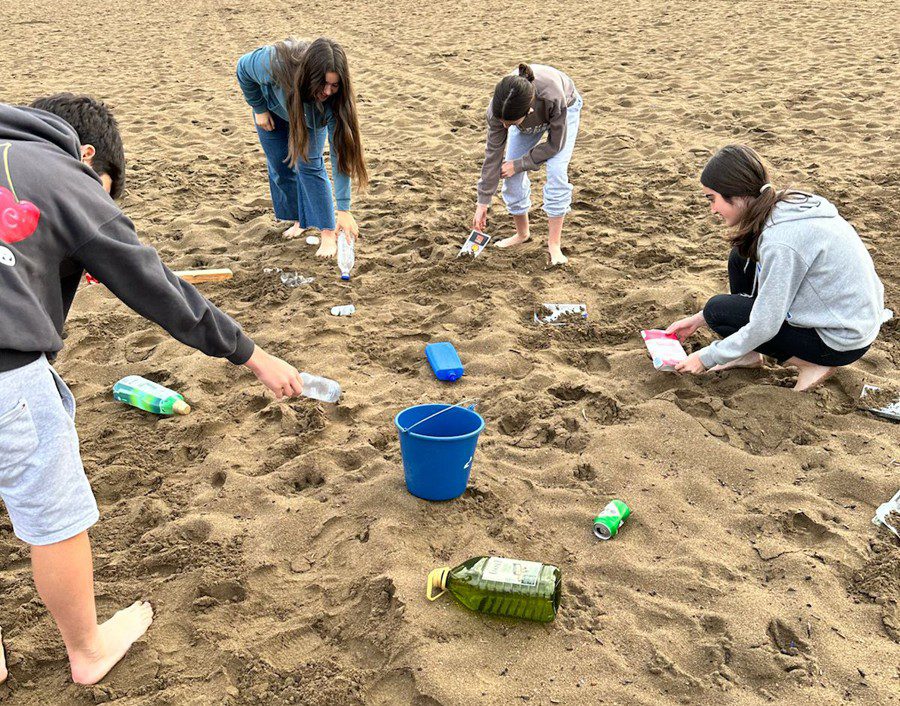CIC energiGUNE will manufacture electrolytes adapted to the production with 3D printing of solid-state batteries without lithium metal and cobalt

The ARISE subproject, which is part of the 3D ASSET project funded by the Ministry of Science and Innovation in its call for “Green Transition and Digital Transition Projects”, will be key to making progress in the manufacture of 4th generation, high-performance and more sustainable batteries.
The Basque centre, a benchmark in solid-state battery research, contributes its extensive experience in the development of advanced materials, which will be essential to meet the needs of 3D printing technology.
 CIC energiGUNE, a leading Basque research centre in electrochemical energy storage, thermal energy storage and conversion and hydrogen technologies, is working on the development of electrolytes, anodes and interfaces that facilitate the manufacture of solid-state Li-ion batteries through 3D printing under sustainability and high energy performance criteria. The research work being carried out at the Basque centre corresponds to the ARISE sub-project, included in the 3D ASSET project funded by the Ministry of Science and Innovation in its call for “Ecological Transition and Digital Transition Projects”.
CIC energiGUNE, a leading Basque research centre in electrochemical energy storage, thermal energy storage and conversion and hydrogen technologies, is working on the development of electrolytes, anodes and interfaces that facilitate the manufacture of solid-state Li-ion batteries through 3D printing under sustainability and high energy performance criteria. The research work being carried out at the Basque centre corresponds to the ARISE sub-project, included in the 3D ASSET project funded by the Ministry of Science and Innovation in its call for “Ecological Transition and Digital Transition Projects”.
“The development of current collectors and interfaces for the negative electrode, adapted to solid electrolytes prepared by 3D printing, opens the door to new concepts in the digital manufacture of batteries and makes it possible to increase the performance and interfacial stability in the cycling of the devices,” said Montse Casas-Cabanas, Scientific Coordinator of the Electrochemical Storage Area at CIC energiGUNE and head of ARISE at the Basque centre, together with researcher Pedro López-Aranguren. “In addition, we will be able to advance in the manufacture of batteries without anode-free lithium metal electrode and with positive high-voltage materials without cobalt, with high energy and power density, and fast charging, known as ‘Generation 4’,” recalled López-Aranguren.
In this context, the ARISE subproject will be key to consolidate the main objective of the project, which is to develop a new generation of advanced solid-state lithium-ion batteries that offer high performance and can be digitally manufactured from their design. To this end, work will be done on the characterisation of a new generation of anode-free batteries (i.e. the lithium metal anode is formed in situ, minimising the amount of lithium in the cell) and with cobalt-free cathodes, as well as on the effective implementation of the new materials in inks and filaments for 3D printing technologies.
The advantages of the application of 3D printing in the manufacture of solid-state batteries will be particularly noticeable in aspects such as the reduction of risks related to the use of critical metals, such as cobalt and lithium. In fact, this project will promote the manufacture of ‘Generation 4’ batteries: high-voltage, anode-free, cobalt-free, high-energy and high-power density, fast-charging lithium batteries that meet EU guidelines for the batteries of the future.
The project also aims to achieve concrete results in all areas of research, such as the development of printable raw materials and the production of 1st generation low-voltage cobalt-free cells and 2nd generation high-voltage anode-free and cobalt-free cells without anode and without cobalt. The manufacture of prototype cells with high gravimetric energy density is also envisaged.




